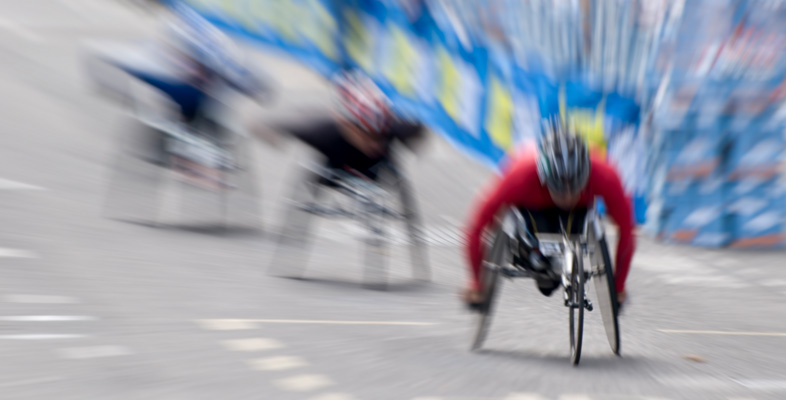Rolling fast: the science behind wheeled sports
Before starting your study of this course, watch this introductory film.
Download this video clip.Video player: Video 1
Transcript: Video 1
Narrator
These cyclists are among the best in the world.
The competitors that train here include several Olympic medallists and a handful of World Champions - standards are incredibly high.
But how did the cycling squad go from being spare wheels on the circuit to being all conquering international heroes? Well - yes and you're probably just a little bit ahead of me here - they took advantage of science…
It's not enough to be able to pedal quickly - you need to pedal powerfully… You need to perform tactically - and hey - even fly through the air if you're brave enough to take on the BMX circuit…
Cyclists need to understand aerodynamics - and speed and acceleration.
Track cyclists take advantage of gravity as they use the banked corners in races - BMX competitors are also using the basic laws of physics to power their way round a circuit.
Cycling IS about the athlete - but it's also about the apparatus. The cycle is as important as the cyclist.
The bike itself can be the single biggest deciding factor. What materials is it made of - how does the design, the weight and the balance of the frame affect how fast it will go?
In this part of the course we'll look at some of the science of cycling - and the way that the same science affects wheelchair sports. Like in other sports - specialised training has become the norm - but here it's also technology that can really make a difference.
Video 1
Interactive feature not available in single page view (see it in standard view).
